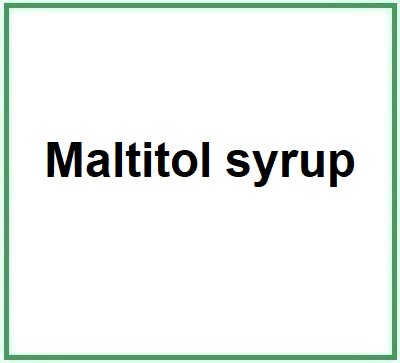![]() Maltitol syrup
Maltitol syrup
Rating : 8
Pros:
Antidiabetic (1)Cons:
Avoid excessive amounts (1)Maltitol syrup is mainly used as a sweetener by the confectionery industry.
Maltitol is a synthetic sweetener, a disaccharide, derived from maltose with a dehydrogenation process.It has a lower calorific value than sucrose, or sugar, but almost the same sweetening power.Advantages :
Suitable for diabetics
Very stable, it doesn't change
... (Read the full Tiiip)
8 pts from A_Partyns
| Evaluate | Where is this found? |
| "Descrizione" about Maltitol syrup Review Consensus 8 by A_Partyns (12948 pt) | 2019-Oct-31 17:54 |
Maltitol syrup is mainly used as a sweetener by the confectionery industry.
Maltitol is a synthetic sweetener, a disaccharide, derived from maltose with a dehydrogenation process.It has a lower ...
| Read the full Tiiip | (Send your comment) |
Read other Tiiips about this object in __Italiano (2)
Component type: Chemical Main substances: Last update: 2012-12-30 22:31:35 | Chemical Risk: |


